Combatting the invisibility of older gay men
Why are gay men over 50 being erased by our culture?
About a year ago, after five years work, endless rewrites and table readings, a film-festival award, and input from gay friends in the industry, I finally took a deep breath and sent my queer-themed sitcom pilot, “Life After Death,” to agents and producers. I was ready to go to battle with the bigwigs.
The reactions were swift and merciless, one (gay) agent writing me that, although the show was funny, the characters were depraved, the language vile, the sexual references unthinkable for a mainstream, albeit cable TV, audience. Among dozens of offenses listed, he said that no one will watch a leading man make a joke about bottoming. “Where,” he asked, “are the heroes who show how far the community has progressed?”
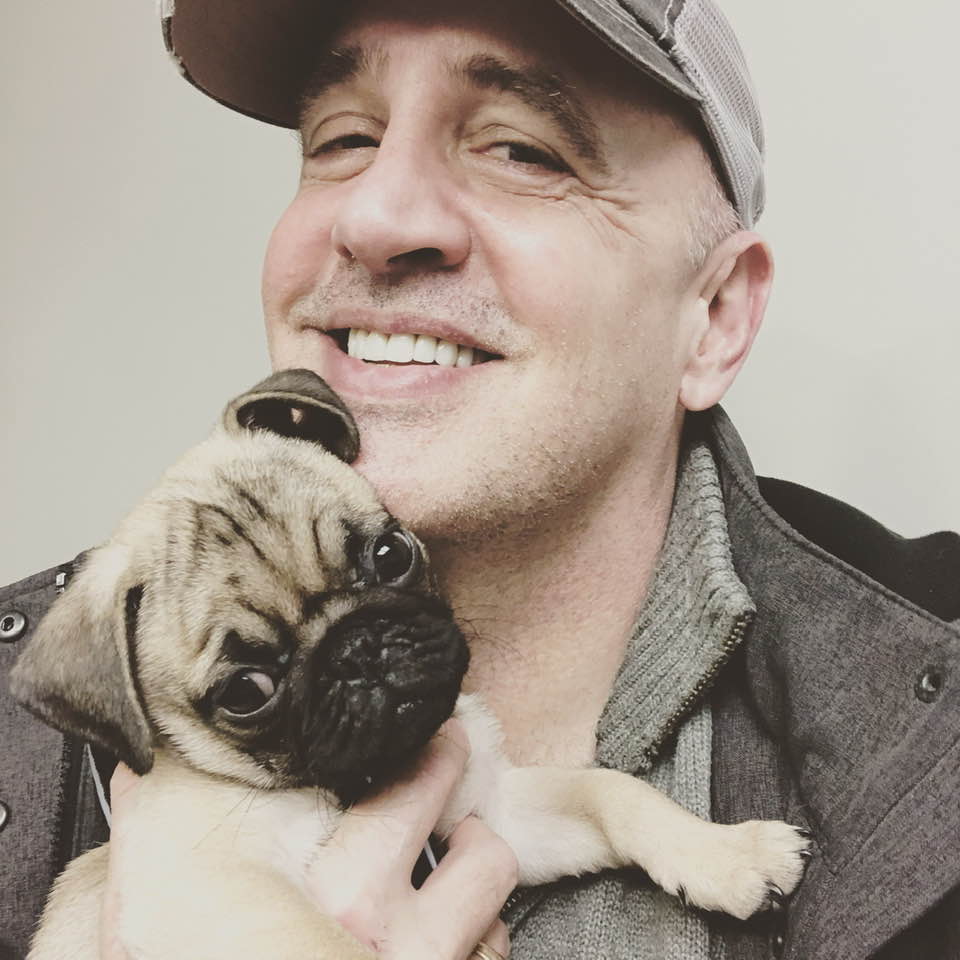
The show, about a fifty-year-old gay man struggling to overcome alcoholism, narcissism, and a sex-addicted past, and set against the backdrop of his tumbling L.A. writing career, wasn’t meant to be the next “This Is Us” or even “Looking,” a rare age-friendly dramedy filled with gay sex scenes. And, for the record, there wasn’t a snippet of nudity in the pilot. It was meant as a humorous, albeit dark, take on a generation of men who didn’t grow up with marriage as an option, or kids, or mainstream visibility, or sexual conformity. It was meant to be a show about people like me.
Although I’ve been writing forever—with all the insults such a career involves—and have penned four screenplays in the past two years, the criticisms for this piece hit me like bricks because they were a direct affront to the last generation of unbridled, yet restricted, gay men who’ve survived despite a former pandemic’s desire to kill every last one.
We’re here, a few of us anyway, we’re still queer, and now we’re used to being ignored.
I rarely see my 56-year-old reflection on television unless the stories are set in the past, whether as closeted men or AIDS victims. If I’m tragic, I’m desirable. Russell T. Davies’ much -ballyhooed and marvelous “It’s a Sin,” expertly showed the brutality—and fun—that mirrors my own youth as an actor in San Francisco. Ever want to know what happened to the men who escaped the holocaust? The networks don’t. The men of “Queer As Folk” (Davies’ previous TV offering) were viewed from a mostly heart-rending standpoint, not surprising given it premiered during the AIDS-aftershock millennium. They were the Boys in the Band with condoms, not handkerchiefs, in their back pockets. In modern times, Will Truman was the first man out and, ironically, the last. And even he was somewhat asexual.
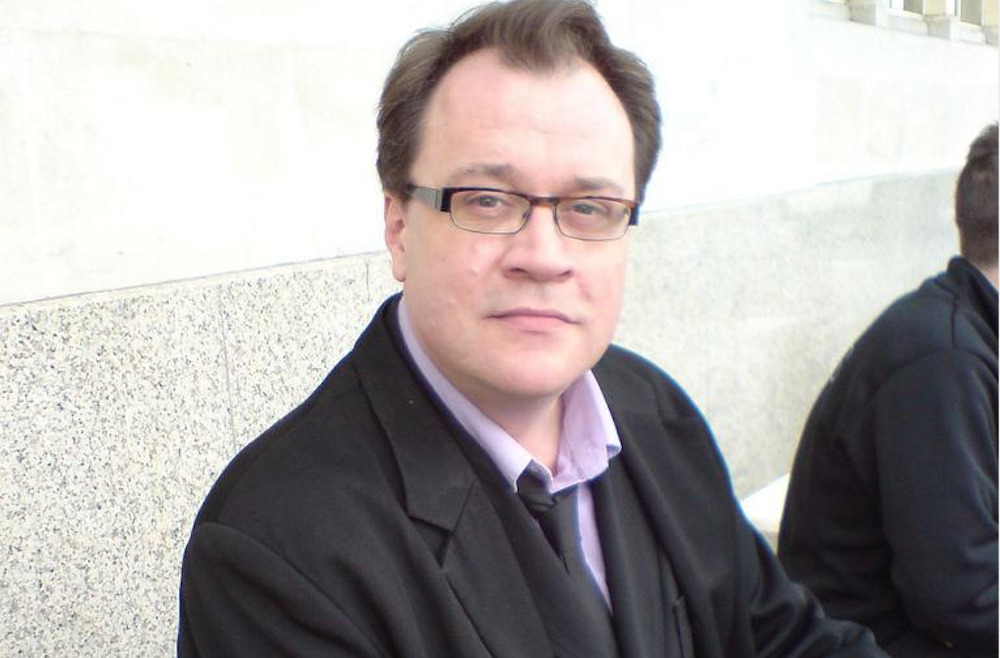
With the rise of TV anti-heroes like Tony Soprano and Walter White, and a fondness for darker, more complicated characters in general, I thought, naively, that a mature, gay male lead would be welcomed in the same manner. In 2021 we’re all equals now, right? Don Draper slept his way around New York, and no one batted an eye. Christina Applegate’s Jen Harding on “Dead to Me” smokes and swears and drinks too much and even kills a guy. She’s also the character you root for each episode. In “The Flight Attendant,” hero Cassie Bowden (Kaley Christine Cuoco) guzzles vodka and one-night-stands her way around the globe, but she at least has her sainted, gay, married with children, older brother, Davey (T.R. Knight), to bail her out. Supporting gays as saints or sinners are always welcome. But show a grown gay man happily admit to taking Truvada and it’s like you’ve set the TV set on fire.
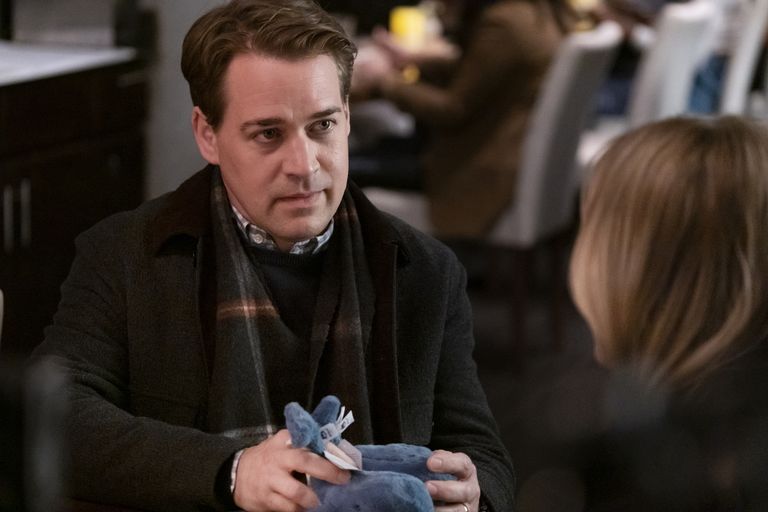
As far as media debauchery goes, negative reactions to bad behavior in my script shocked me, because I naively that should be a no-brainer these days. Graphic sex and language exist on pretty much everything around, from teen melodramas (“Euphoria”) to plush period pieces (“Bridgerton”). “American Horror Story: Hotel” showed a man get, literally, f***** to death with a drill dildo, and if Ryan Murphy’s name is at the helm, you’re almost always guaranteed a good dose of tight tush. It felt at times like there was more full-frontal nudity on Hulu’s “Normal People” than there was dialogue or plot. Yes, somehow, grown gay men who admit to once having paid for sex are anathema to our puritanical gay morals.
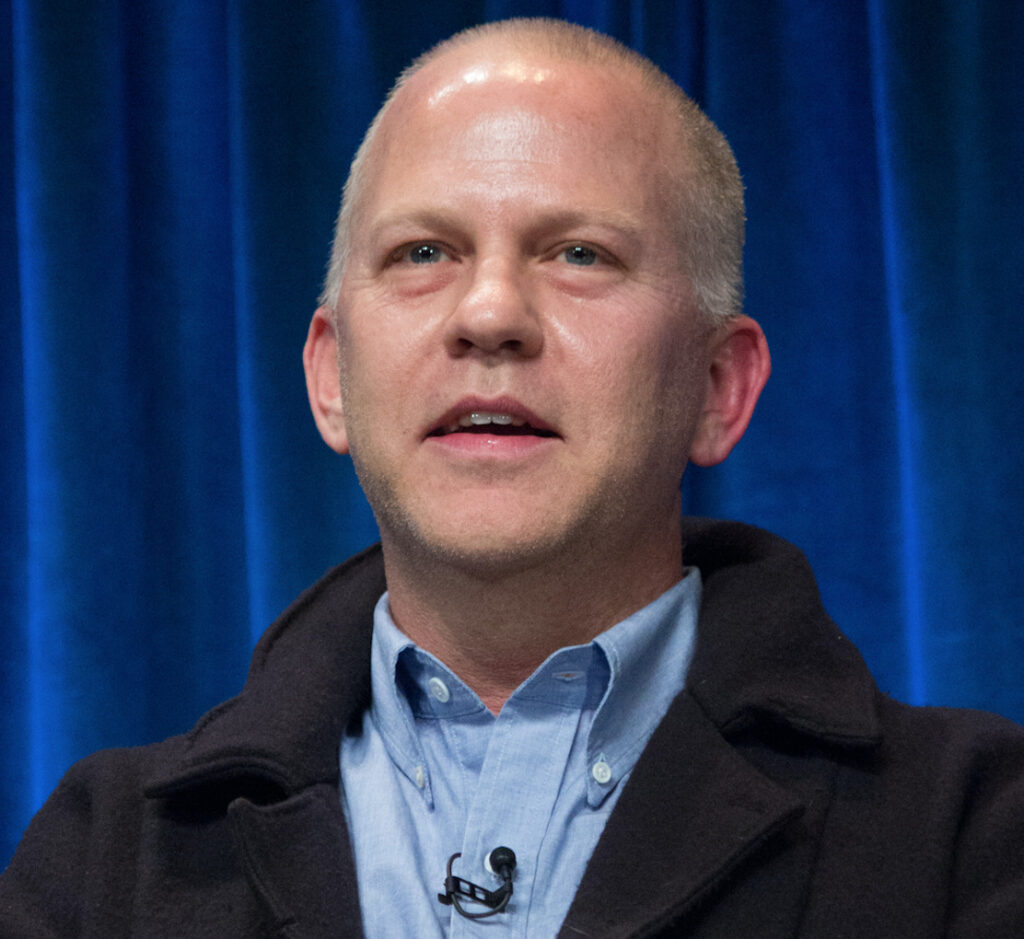
The problem with putting gay men my age in the spotlight isn’t that we’re attracted to, and having relations with, the same sex (thank people like Murphy and others for helping to break that TV barrier). It’s that we’re untidy in our packaging—just like in real life. Coming out, getting married and raising kids, and living our best Instagram lives is not always the whole story. We were canceled on television before Cancel Culture became a thing.
Of the hundreds of gay men I met and befriended when I came out at the young age of sixteen, roughly twenty of them survived AIDS. We were the last generation defined by sex, and as we shook off the residue of lovers and friends, we learned to adjust to a world where HIV wasn’t a death sentence, where we could be seen in public with our dates, where we could be equals both in the workplace and domestic life. Our lives became three-dimensional if not living-our-best-lives hashtag-able.
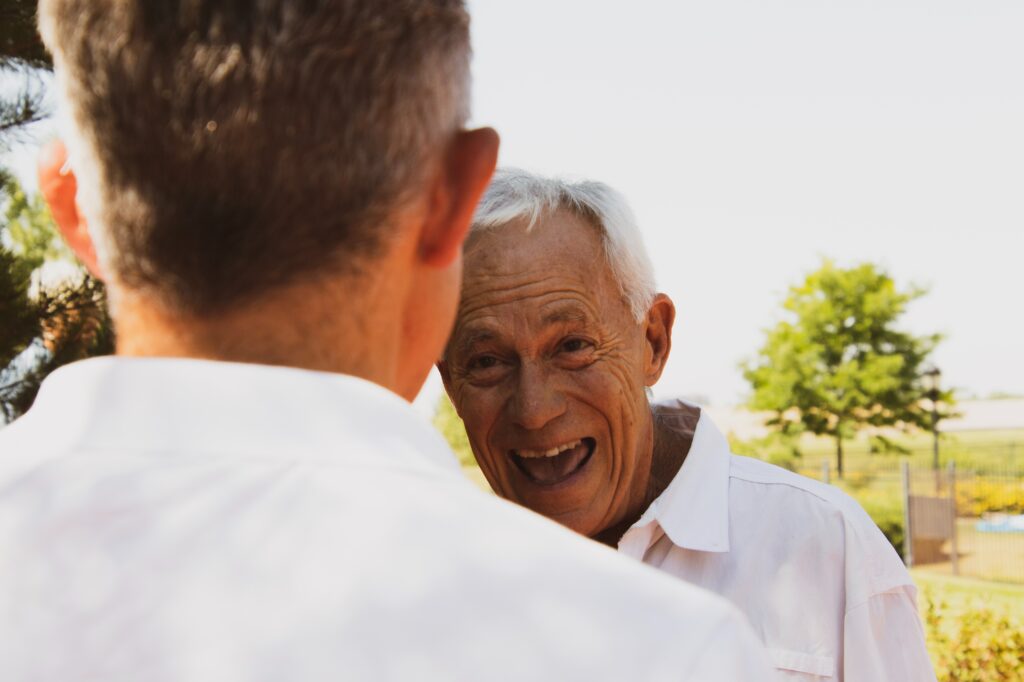
In the process, older gay men are often seen (or not seen, as it were) as relics, tugged by contrasting authenticities. We fought and died for marriage and rights, for conformity, but still often believe in open relationships, still work out like it’s 1999, and celebrate PrEP and U = U like the second coming of The Roxy.
Since our generation grew up in a time when Pride often meant “Party,” endorsed by every gay rag at our reach, we’re also chockfull of recovery programs and relationship PTSD. Think of us as the vets who returned home to a world that found it easier to ignore than engage.
The gays of my generation are also wicked smart and fascinating, as all survivors are. It’s because of our complexities that our lives should be celebrated in the present tense, and it’s because of our legacy that people will pay attention. In case my media references weren’t enough of a clue, we’re vast consumers of pop culture, searching for signs of our life on screen the way we used to search for bars with a rainbow flag above.
The men I grew up with no longer need to be seen by the media as unflinching or perfect, nor do our flawed selves need to be reduced to fit into anyone’s mold of a queer hero. We spent our entire youth pretending to be someone else, and our only request is that you now allow us to grow up in that fashion that suits us. Let us act our age as well as our history. As every gay man over the age of fifty knows, we didn’t just live through death; we discovered the life that comes afterward.

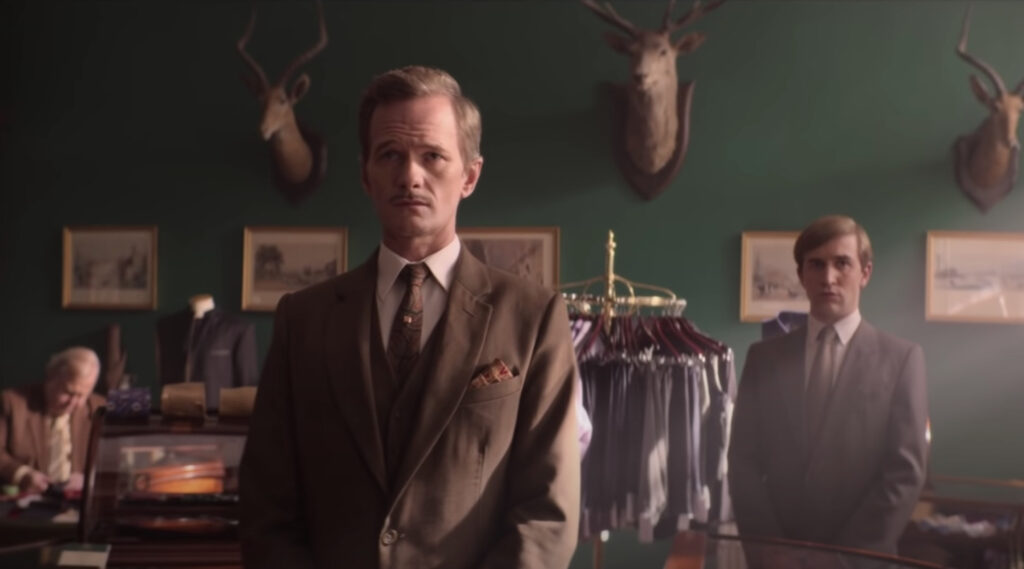





That’s why we produced and distributed Old Dogs & New Tricks ourselves (and eventually got it on Amazon Prime). Its a fool’s errand to expect mainstream “powers that be” to give two shits about LGBTQ representation, either over or under 50.
What about “Vicious”?
I find it rather strange that some, not only gay men, feel the need to see “someone who looks like me” in the mass media to feel validated.
Exactly
Read that too. Def sounds like typical gay shit and as usual, not profound at all…what else is on
As a 64 year old gay male, I have often thought about about the fact that my generation grew up without “marriage as an option, or kids, or mainstream visibility, or sexual conformity.” Hell, it was a revelation to me in my mid-to-late 20s, even as a college graduate, that gay men were allowed to be something more than actor-model-waiters. I was socialized into and in the gay “community” (whatever that means or has meant), to believe that the only value we had for one another was as sexual objects and, sometimes, as friends.
Like so many others in my age range, we went out into the workplace and fought for the rights and dignity and respect that we not only expected but demanded. Yet while this writer’s proposed show is about about a fifty-year-old gay man struggling to overcome alcoholism, narcissism, and a sex-addicted past, and set against the backdrop of his tumbling L.A. writing career, forgive me but we have heard these themes and dealt with these issues as not only gay men but seen many a straight person deal with the same issues, that the plot line isn’t all that compelling to me.
The show may be about people “like me,” for the author, but this is in some ways and, in many others, is not about people like me. Mr. Toussaint writes about surviving the 80s and 9os “despite a former pandemic’s desire to kill every last one [of us].” To me, that would make a way more compelling show. I published a story on my website and blog about being in a bar in Atlanta, where I live, in the spring of 1985 and some friends coming up to me and saying, “Have you heard about the new gay cancer?” My response was, “Gay cancer? That’s the dumbest thing I’ve ever heard of. How does a cancer cell know if you are gay or not?” That, of course would be analogous to those who today seem to think COVID knows whether you are a Democrat or Republican, but I digress.
Many of us who lived through and survived that period were bruised and battered and scarred by the experience. We had to confront, in the early days of that pandemic, the notion that maybe this was God’s punishment for who and what we were.
I would agree with the author that over time, gay characters have become more nuanced, more three-dimensional, more human, as portrayed in popular culture. I also agree with the author that “I rarely see my [64]-year-old reflection on television unless the stories are set in the past, whether as closeted men or AIDS victims.” Hell, when I was in my 20s, the pre-AIDs era, gay male characters still had to die or as a roommate of mine at the time said regarding TV and movies at the time, “The only good faggot, is a dead faggot.” To my dying day I will never forget how the truth of that realization hit me, as well as how offended I was by that fact.
The author writes, “We were canceled on television before Cancel Culture became a thing.” Well, no, Dear.” As I wrote in a recent blog post entitled, “Cancel Culture & Smiting,” the truth is, “Gay men are well aware of this phenomena. Gay men have been practicing cancel culture forever – and doing so in broad daylight so it isn’t new to us. Cancel culture, behaving as if someone or something does not exist and/or does not have the right to exist. If you are not pretty enough, don’t have a good enough body, have the wrong skin color, are too old, not wearing the proper trendy clothes, etc., you are toast.”
For my money, a series about what we have done to one another for decades – and continue to do – would be a much more compelling show or series. I know all about being invisible to other gay men. And now at 64 with a 36 inch waist, thinning hair – at least I still have most of my own teeth – trust me when I tell you, I understand being cancelled by gay men from decades of experience. I would like to see a show about those of us who still have a lot to offer others – physically, emotionally, mentally, spiritually – and how what we have to offer has been informed by surviving what we have been through, than something that goes back to the well-documented and discussed themes of alcoholism, narcissism, and a sex-addiction. No offense meant to anyone reading this, just some thoughts. Best wishes to all.
VERY WELL STATED!
Absolutely. Being another happily unhappy gay succumbing to drugs because relationship PTSD (and probably addiction itself) may be the unpopular trend that is now nearly as much of staple as HIV and AIDS was in the 80s, only instead of working to fix the narrative, we affix ourself to it for good humor. Good humor, that is actually, not funny. Tragic is not desirable, especially when one has the platform to inspire, mentor, or in some way possibly help people figure out for once what is right and what is wrong, both now and in the long run. Because I want love and health and happiness to spread, not just drugs, a Viagra, a Truvada and and another story of bitchy sex-crazed independence turned isolated, sad and void of purpose. Enough already. We say we are proud? Proud of what? To afraid of loving each other because we can’t love ourselves so we just stick to bad habits and a victim mindset. Isn’t the bleakness of it all so riveting?
I killed my Indie film acting career when I said “I will only play gay roles.”
Directors and Producers did not understand the concept that it only needed to be noted in the script that the character be gay.
They assumed stereotype and trope.
Not realizing that we are everyone and everywhere.
Fortunately the modeling industry is more accessible.
At 64 I’m in the soon to be released documentary “All Man, The International Male Story.”
Yea, people have a hard time with gay but unassuming. They need the outlandish to come with it, or it’s pointless to mention. I too learned to just zip it about me being gay. People don’t walk up to me and tell me about their love life so why should I. And if they do, doesn’t mean I’m gonna give them my business. For what? Their acceptance and friendship? Based on that? nah. I want acceptance and validation, but not something so simple as that. Suffering is not an accomplishment and without a twist of fate, the story just falls flat. I’d rather be seen for my talents, not my swan song.